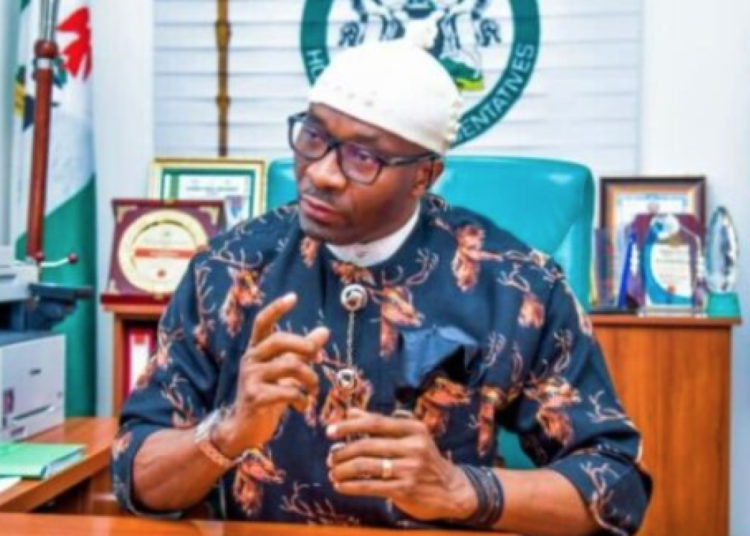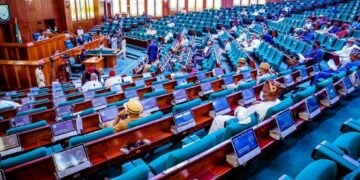The Deputy Speaker, Nigerian House of Representatives and Chairman, Constitution Review Committee, Hon Benjamin Okezie-Kalu has urged women legislators to kickstart advocacy campaigns to win the votes of their representatives at the national and states assemblies.
The lawmaker made this call at a dinner organized by the Policy and Legal Advocacy Center (PLAC), the European Union and the Nigerian House of Representatives for women legislators in Abuja, to help raise momentum for the bill ahead of its public hearing by the committee.
While applauding the efforts on the bill thus far, Kalu urged the women to embark on advocacy campaigns aimed at lobbying their representatives at the national and state assemblies, as well as the Nigerian public, to buy into the Bill of Special Seats for Women in Nigerian legislature.
Kalu said to the women, “the bulk of work lies with you, women. This advocacy is both internal and external. Your first port of call is to identify who is your representative, your senators. Visit them and educate them on the Special Seats as I did with you today.
“Each woman should target each senator. Give them all the love they need. Give them what they need to buy into this. You can host all the senators of your state to a dinner, or buy them a bag of rice each or heaps of tomatoes. Show them that respect. By the time this gathers momentum across states, members of parliament will be aware of it, and understand it. But if there’s too much ignorance of the bill, they will feel threatened that you want to take their seats. We are naturally patrimonial and don’t feel women should compete in positions with us (males).
“Tell them we are not taking their seats, rather you are only asking for their support to have your own seats.”
To the EU, he urged their financial support to ensure an effective advocacy campaign that will raise the awareness of the bill among the Nigerian public.
Addressing Nigeria’s imbalanced democracy which has resulted in 50 percent of the nation’s population (women) having solely 4 percent representation in governance and decision-making compared to 96% male representation, PLAC Executive Director, Mr Clement Nwankwo said the bill will be the “most significant amendment in the Nigerian constitution since Independence.
“It is not a question of who is doing what, rather about all of us doing something, that at the end of the day, we will all share in the credit that comes with the collective effort we have made.”
On his part, Dr Matthew Aiyebokuru, of the UK Foreign Aid Development Office, described the bill as “one of the most exciting things I have been a part of, working on democracy in Nigeria. We have come far. There is no doubt that this moment is a credit to women’s rights organizations in this room, the CSOs, policymakers and more especially the lawmakers who have brought us this far in this very important journey of our democracy.”
Highlighting how much farther Nigeria has been relegated in global politics and development by the inadequate participation of women in governance and policy, Head of EU to Nigeria and ECOWAS, Gautier Mignot, said the bill is not only about “putting Nigeria in her right standing, nor is it solely about women’s rights, rather it is for the benefit and progress of all Nigerians.
“This is about having a better governance in the country for all. It is very important to explain to government and the public that (the bill) is not a favour to one set of people but something that will benefit the whole of society. It is important to convince the men, your husbands and brothers on the bill,” Mignot told the legislators.
The Special Seats Bill seeks to amend the 1999 constitution to provide reserved seats for women in the national and state houses of assembly, and for related matters (HB 1349).
The Bill proposes the creation of one Special Seat for Women per Senatorial District, and one per federal constituency, to be contested by women in general elections. It does not reserve any of the existing seats or constituencies for women. The new seats would exist alongside the current constituency seats, and will be in place for a limited number of four election cycles (16 years), after which it would be reviewed.





